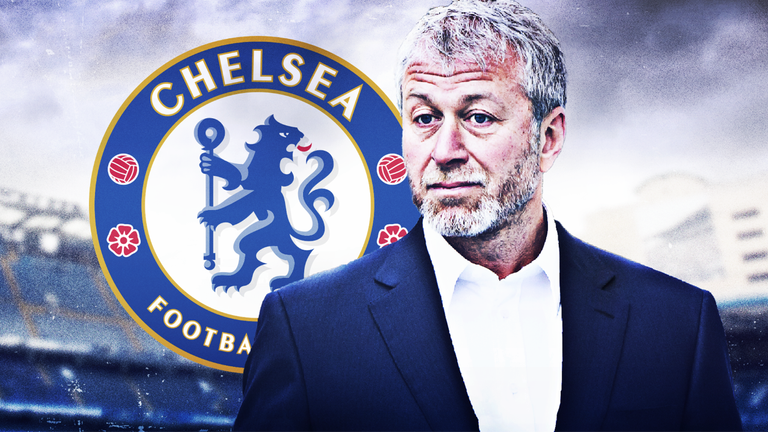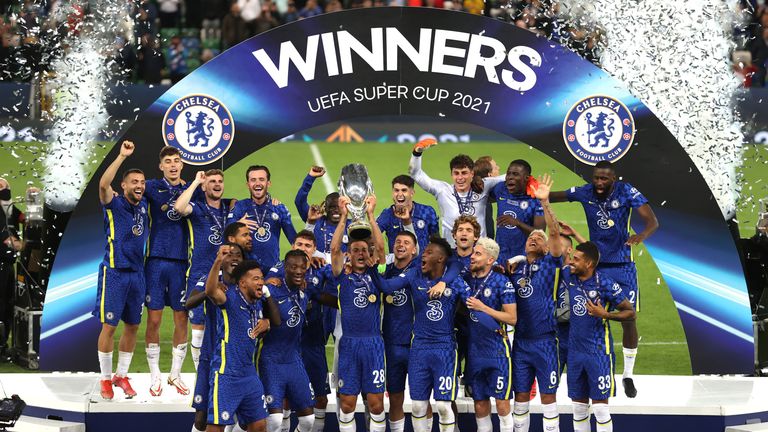Chelsea owner Roman Abramovich has been sanctioned by the UK government – meaning he is now unable to sell the club.
Abramovich has had “his assets frozen, a prohibition on transactions with UK individuals and businesses, a travel ban and transport sanctions” imposed on him.
The sanctions are intended to stop the 55-year-old from making any money in the UK – and this includes from Chelsea. An application to the UK government can be made to sell Chelsea in the future as long as Russian-Israeli billionaire Abramovich does not profit or make any money from the transaction.
The government has granted Chelsea a special licence to allow fixtures to be fulfilled, staff to be paid and existing ticket holders to attend matches.
But all Chelsea teams are now banned from:
- Offering new contracts to players or staff – Antonio Rudiger, Andreas Christensen and Cesar Azpilicueta see their deals expire on June 30
- Conducting any official transfer business, including women’s team
- Selling new tickets to any game for any of their teams – including women and junior sides (season-ticket holders and existing ticket holders only)
- Selling merchandise to fans (existing merchandise can be sold via third parties)
- No stadium work or redevelopment
- Spending over £500,000 on security, stewarding and catering costs per home match and over £20,000 expenses per away games
Nadine Dorries, the minister for Sport and Culture, tweeted: “I know this brings some uncertainty, but the Government will work with the league & clubs to keep football being played while ensuring sanctions hit those intended. Football clubs are cultural assets and the bedrock of our communities. We’re committed to protecting them.”

A government statement said: “Given the significant impact that today’s sanctions would have on Chelsea football club and the potential knock-on effects of this, the Government has this morning published a licence which authorises a number of football-related activities to continue at Chelsea.
“This includes permissions for the club to continue playing matches and other football-related activity which will in turn protect the Premier League, the wider football pyramid, loyal fans and other clubs. This licence will only allow certain explicitly named actions to ensure the designated individual is not able to circumvent UK sanctions. The licence will be kept under constant review and we will work closely with the football authorities.”
Chelsea released a statement nearly five hours after the news broke, saying: “We will fulfil our men’s and women’s team fixtures today against Norwich and West Ham, respectively, and intend to engage in discussions with the UK Government regarding the scope of the licence.
sky sports














